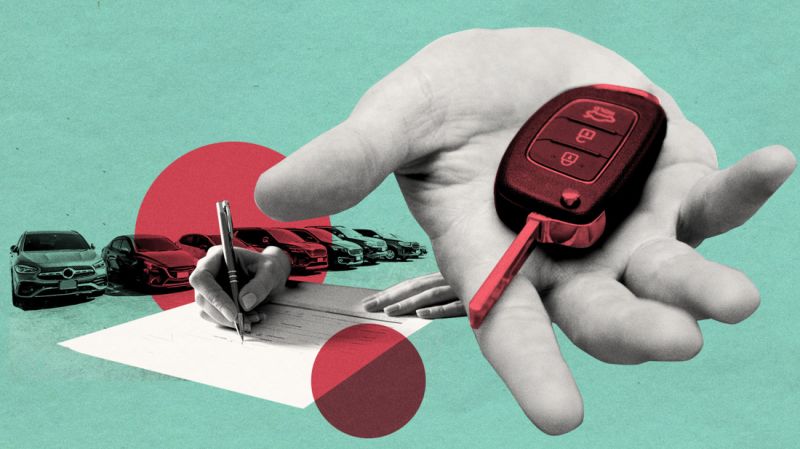You’ve managed to buy the car, but can you afford to keep paying for it?
Along with soaring car prices, loan rates are the most expensive they’ve been in more than 15 years, with the average monthly payment on a new car at an all-time high, new data from auto website Edmunds shows.
The result of the one-two punch of higher prices and interest rates is that it’s taking Americans much longer to pay off their car loans — which include crossovers, SUVs and pickup trucks — and more buyers are being pushed out of the car market altogether.
“The reality is that you’re getting a narrower, narrower and narrower buying pool that actually can afford to buy new vehicles,” said Jonathan Smoke, the chief economist at Cox Automotive.
The average annual percentage rate (APR) on financing a new car climbed from 4.5% in March 2022 to 7% a year later. Even after falling slightly from February, that’s the highest loan rate since 2008, according to Edmunds data published this month.
High loan rates mean monthly payments are soaring as well. In March, the average monthly payment for financing a new car hit $730 — the highest on record, according to Edmunds. The average payment for financing a used car is now $556 per month, which is up a staggering $147 from June 2020.
More new car owners are paying as much as $1,000 a month. In January 2019, new car payments over $1,000/month made up roughly 5% of sales. In March 2023, only four years later, four-figure monthly payments ballooned to 17% of the new car market.
Some of the high-monthly-payment buyers are people with short-term loans — usually three or four years — with a high monthly payment and large amount down. The number of those shorter-term loans has grown over the past two years, but the prohibitive up front cost means they’re still only a small portion of the market, Edmunds director of insights Ivan Drury said. Most $1,000 per month car loans are taken out by people who choose high-interest, longer-term loans.
Rising car prices and the growing difficulty to qualify for lower interest rates have forced buyers to stomach a heftier monthly bill over a longer period of time — as long as seven years — for a lower down payment up front.
In 2004, only 1% of auto loans lasted six to seven years. Now those long-term loans are 30% of the market. Only 5% of loans are paid off in two-and-a-half to three years.
While buyers who opt for longer loans are paying less money up front, interest rates catch up over time. For instance, a buyer who takes a 70 month loan for a $28,700 used car at the current average loan rate could pay 38% more just in interest. By contrast, a buyer who takes only a two and a half to three year loan could pay a small fraction of that.
“The pressure is most extreme on the lower credit consumers, because not only are they dealing with the interest rate move and inflation and vehicle prices, but they may also pay a premium because their credit is not as good,” Smoke said.
Despite these challenges, the latest sales data shows the market is continuing to recover from the post-pandemic supply chain crisis. New vehicle sales in the first quarter of 2023 grew 5.7% over the first quarter of 2022, according to data from Cox Automotive.
However, most of that sales growth has been from higher-income households, Smoke said.
The median household income would take 43 weeks to pay off the average new vehicle, according to Cox Automotive’s vehicle affordability index as of February.
Subprime loans, which are offered to consumers with lower credit scores, represented roughly 15% of the market in March 2020. By the end of 2022, subprime loans shrank to roughly 5% of auto loans, according to Cox Automotive data.
“You’ve effectively lost about 10% of the previous buying pool because they’ve been priced out of the market,” Smoke said.
Read the full article here










